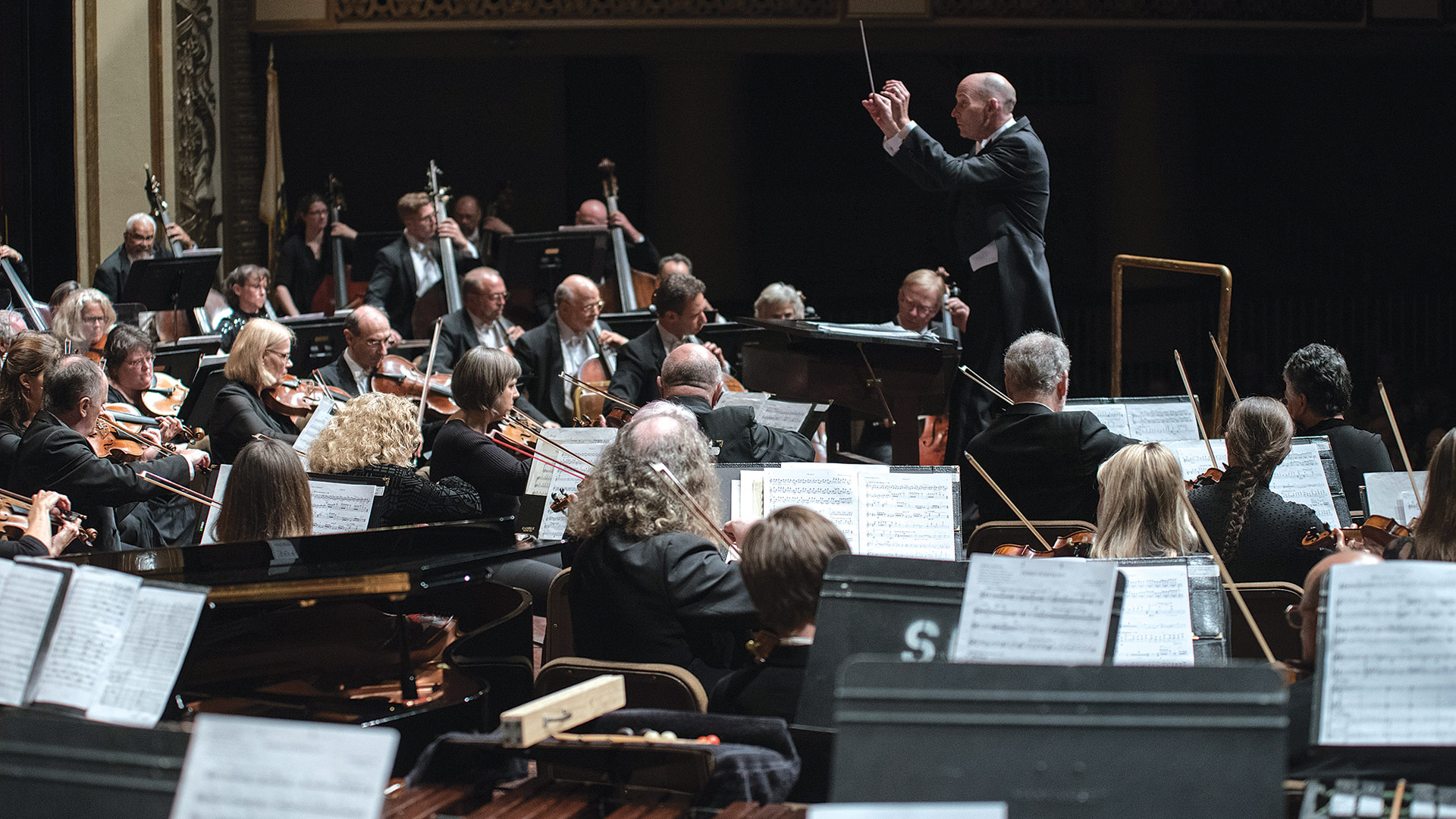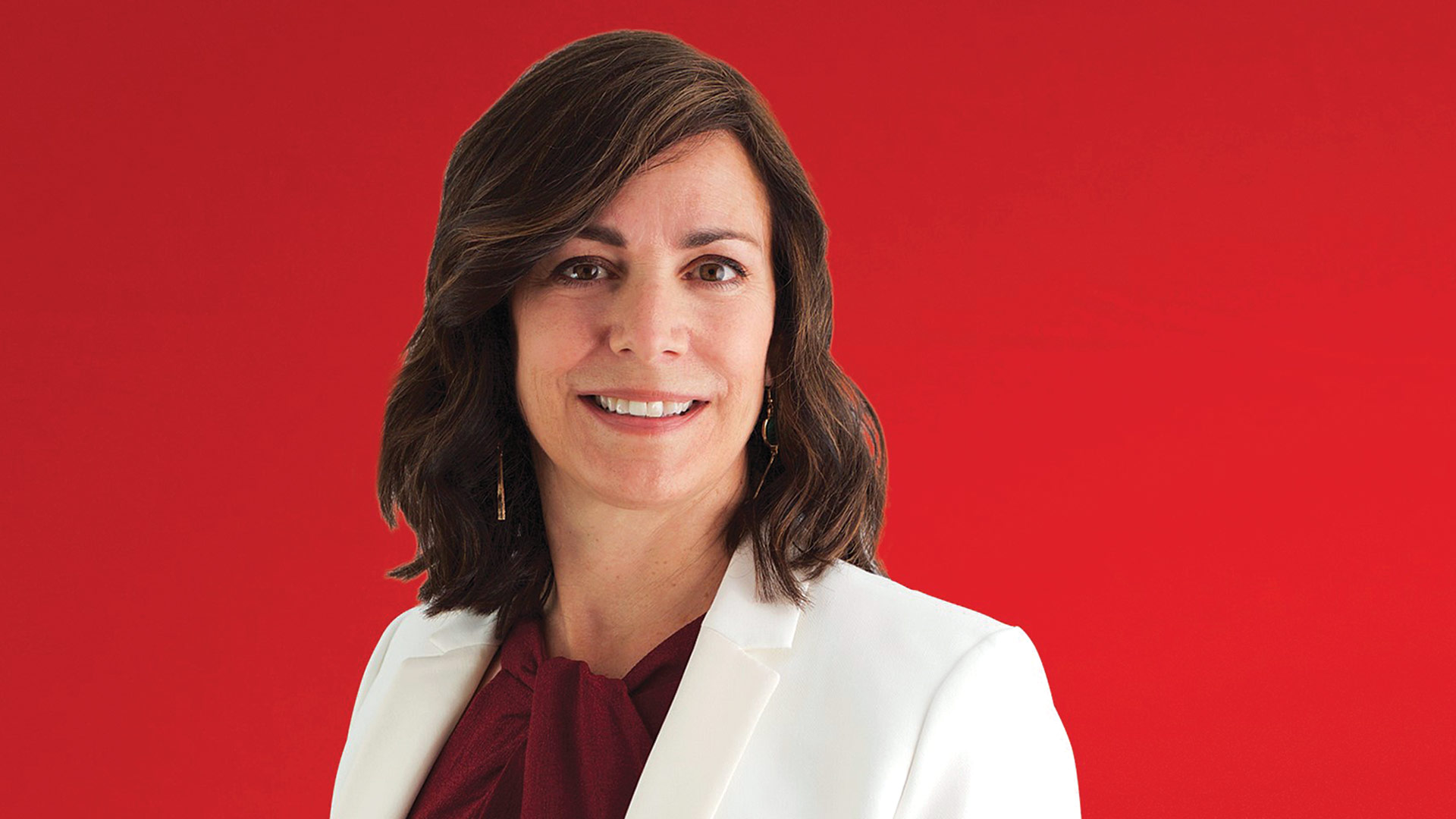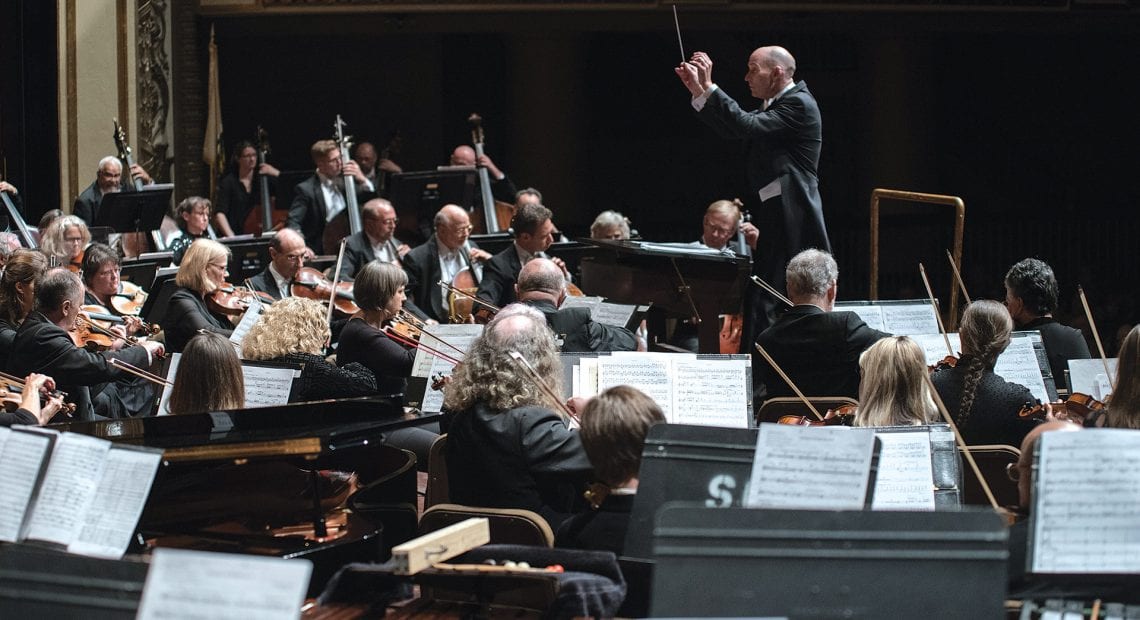Developments of Note

The SSO hasn’t been able to perform live since the pandemic arrived, but it has found ways to keep the music coming.
Susan Beaudry called it a ‘stop the presses’ moment — quite literally.
Indeed, the program book for an adjusted, and truncated, 2020-21 season for the Springfield Symphony Orchestra (SSO) was at Hadley Printers back in April, and the presses were set to roll. But at the very last moment, the order was canceled.
“The tenor of our industry was … ‘I wouldn’t say anything, I wouldn’t announce a season,’” said Beaudry, adding that, back then, as the number of cases in this state and around the country were soaring, industry groups were advising that it didn’t make sense to put a schedule down in black and white. And it still doesn’t.
“When you’re selling, which is what we’re doing when we announce a season, it’s very difficult in this climate,” she told BusinessWest. “People are afraid, still, to make a commitment — they’re not sure they want to gather in large groups, or they’re not sure what their financial situation is going to be. They’re not going to pre-buy for a concert that may be months away; we just felt it was an awful lot to ask our patrons and the community to make that kind of commitment.”
This episode captures, in poignant fashion, the state of limbo in which the SSO, and most all other institutions of its kind, now resides.
In short, the future is unknown, and when it comes to live performances before real audiences — the absolute lifeblood of these orchestras — it comes down to a waiting game. A wait for a vaccine, most probably, or perhaps an effective treatment for the virus. Something that will prompt the governor of the state to give the green light for phase 4 of his reopening plan.
“We’re listening and waiting,” Beaudry said. “We’re not planning based on our needs or our desires; we’re just listening. And when it’s the right time, we have a season ready to rock and roll. We may have to move some dates around, we may have to move some soloists around … but we know what we’re doing when the time comes.”
“People are afraid, still, to make a commitment — they’re not sure they want to gather in large groups, or they’re not sure what their financial situation is going to be.”
Beaudry stressed that she and others at the SSO are not simply waiting. Far from it.
In fact, she said she’s probably working harder and longer than she would during a typical season, largely because of an even longer to-do list.
It includes providing music to an audience — not the typical audience and not in the typical way; the SSO is now offering the HomeGrown Series, a weekly (Wednesday) webcast featuring a performance, demonstration, or lecture. It also includes fundraising, creating a fund to pay musicians sidelined by the pandemic, planning — as much as that assignment can be carried out in the COVID era — and working ever harder to create ways to broaden the orchestra’s audience.
Indeed, those at the SSO were well aware, long before anyone had ever heard the term COVID-19, that it needed to expand its base of patrons and supporters, said Beaudry, adding that the pandemic has perhaps brought a greater sense of urgency to this work.
“What we’re not doing is waiting,” she explained. “We’re fully engaged, and we’re working very, very hard. We still have to raise money, we still have to market our brand, we have to keep our musicians in front of our patrons, we have budgetary issues, a strategic plan to undertake … I’m working harder and longer hours than ever, but it’s exciting, fun, and rewarding work.”
As BusinessWest continues its extensive coverage of the pandemic and its broad impact on the region and its business community, we take an in-depth look at the SSO and how it intends to not just weather the storm but use the time and this extreme challenge to examine how to change and become a stronger institution moving forward.
Working in Concert
As she and others at the SSO packed up their computers and whatever else they might need in mid-March and left the orchestra’s offices in downtown Springfield to work at home, the expectation was that it would be for just a few weeks, said Beaudry, adding that this was roughly the same mindset taken with regard to shelving events on the schedule.
Indeed, even before state and federal shutdown orders were put if effect, orchestras, knowing that their audiences are dominated by seniors, began postponing or canceling events — a few weeks or a month at a time.
“We were halfway through March, and we said, ‘let’s just cancel the rest of March,’” she explained, noting that there were several events impacted, from a show at Symphony Hall to a chamber-music performance at Twin Hills Country Club in Longmeadow. “The board agreed — ‘it’s prudent, it’s the right thing to do … let’s not worry about April yet.’”
Soon, though, those at the SSO had a lot more to worry about than just April. As the full scope of the pandemic became clear, the rest of the season was canceled — and soon it also became apparent that the new season, which traditionally starts in September, was now a huge question mark.

Susan Beaudry says that, while waiting for the green light to start its new season, the SSO is busy with everything from fundraising to building its brand to undertaking a strategic plan.
Which takes us back to that order to stop the presses. The program book that was set to roll detailed a truncated schedule that would start with the popular Holiday Pops performance and include four or five other events, said Beaudry.
Now, as noted, even that shorter, simpler schedule is very much in doubt — but ready to go when and if the word — in whatever form it takes — is given.
In the meantime, there is much more than waiting to do — starting with the HomeGrown series, which started back in April with Maestro Kevin Rhodes performing some Brahms on the piano. Over the ensuing weeks, the program has presented a variety of short programs featuring individual artists and even the entire oboe section.
“It’s been very successful, and we’ve received some very positive feedback,” Beaudry said. “It redirects people to a less stress-filled subject and a little levity, a little beauty. As we’ve always said, the healing power of music is very real, and the longer this pandemic lingers, the more that rings true.”
But to provide that healing power, the orchestra must survive what will almost certainly be its most difficult financial test — although it has weathered many over the years, including recessions and even world wars. This one is different, because there are so many unknowns, said Beaudry, adding that the pandemic has already forced the orchestra to furlough some staff and reduce hours for those who remain; she personally volunteered to take a 30% pay cut.
“We’ve basically lost a season,” she said, referring to the second half of the 2019-20 season and the first half of the upcoming season — at least. “We have no box-office sales right now, and we still have expenses.”
A Paycheck Protection Program loan helped keep staffers employed for several months, but those funds ran out, she went on, forcing the furloughs that were announced several weeks ago.
Moving forward, and with no program book for the upcoming season and no concerts to sponsor at the moment, the SSO is looking for different ways to provide value for its sponsors, and for those sponsors to provide the continued support needed to propel the orchestra to the proverbial other side of the pandemic.
“What we’re hoping is that we can turn sponsorship into a sustainability partnership,” she explained, “where these sponsors are going to philanthropically help us get over the hump so that we’re solvent on the other side and ready to take our place in the community and on stage when this whole thing is done. And the only way we do that successfully is with the full support of the community around us.”
While sustainability is now the most critical issue, a related need — to change and broaden the audience base — takes on even more importance in this era of COVID-19.
“We need to remind ourselves that not everyone is going to get dressed up on a Saturday night and drive to downtown Springfield from wherever and sit for two or three hours through a concert,” she explained. “It’s a commitment to come, so we need to figure out what people want to come to and how we can morph — not that we’re going to change our mission; we’re a classical music organization, and we intend to remain that.
“There are lots of considerations for us to make what we do a better product,” she went on, adding that, in some ways, the pandemic is amplifying the need for change and perhaps accelerating the process. Meanwhile, it is also helping to move the SSO in directions it knew it needed to move, such as virtual offerings, like HomeGrown.
“What COVID did was prompt us to ask, ‘what can we do virtually — how can we reach bigger audiences with a stronger reach electronically and virtually?’” she told BusinessWest. “That is a new wave of performances. We’re a live-performance organization; that’s really how we’ve focused — how do we get people to Symphony Hall? But if we can figure out how to best use livestreaming, who can we reach? What does that do for our education programs and our performances, or even the snowbirds who are gone for half our season?”
On a Final Note…
“This music is not in the notes, but in the silence between.”
That’s a quote from Mozart, and it now graces the SSO’s home page in large, bold type.
Not nearly as large and bold as the words “When the Orchestra Returns, Your Seat Will be Waiting.”
That’s a confident pronouncement in itself, with emphasis on the word ‘when.’
“We’ve been around for 76 years, and we’ve been through wars and other disasters, and we’ll get through this, too,” Beaudry said in conclusion. “We’re here to serve; we’re mission-driven. That’s the priority, and we’ll be ready.”
George O’Brien can be reached at [email protected]





